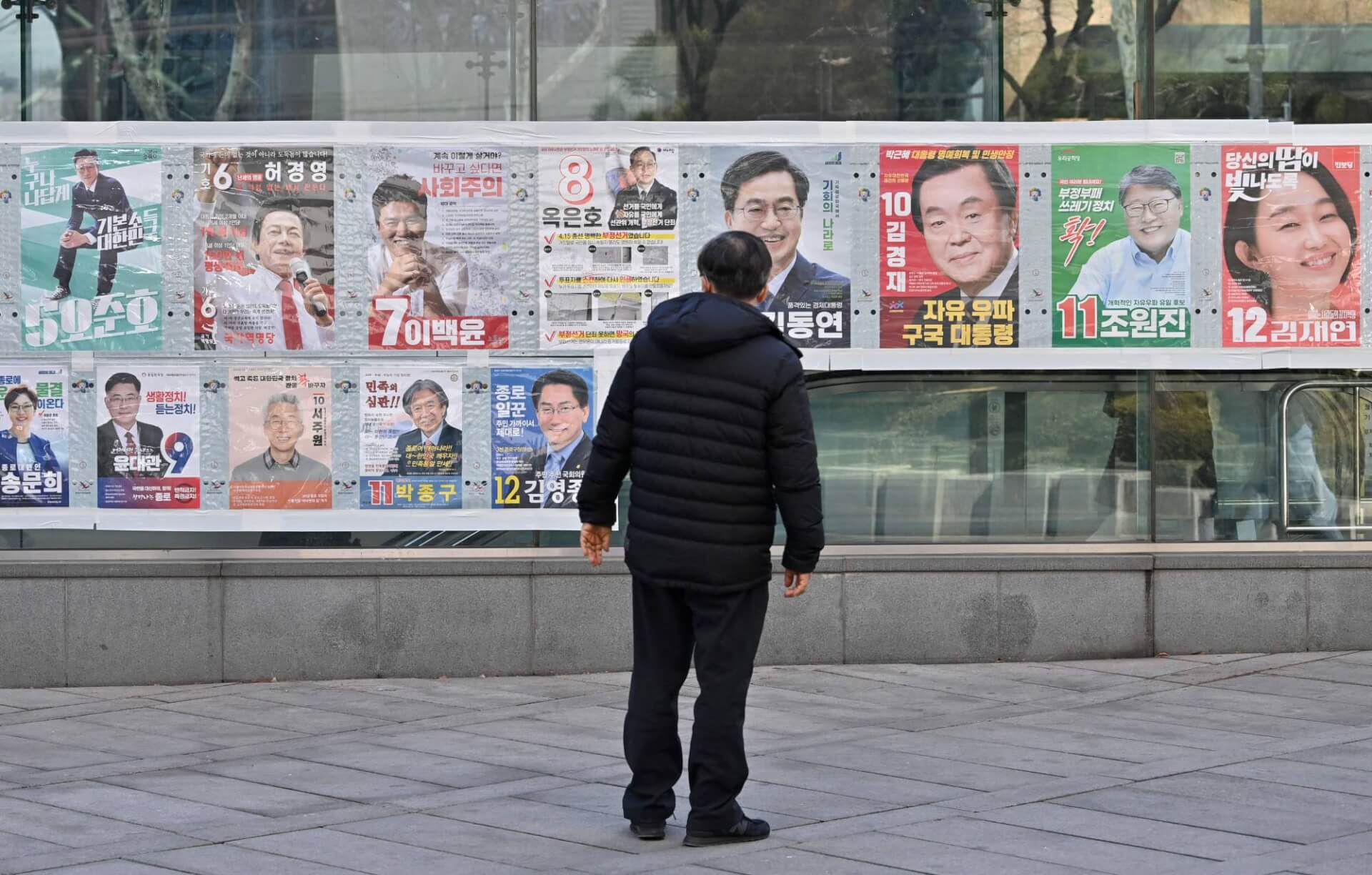As South Korea begins voting for its 20th presidential election today, about 44 million citizens are expected to elect the successor of incumbent President Moon Jae-in, who is constitutionally barred from seeking reelection.
More than 14,400 polling stations opened at 6 a.m. this morning. As the election is being held amid the COVID-19 pandemic, those who have tested positive for the virus have been allotted a special slot between 6 p.m. to 7:30 p.m. after normal voting hours end.
The votes will be counted from 8 p.m. and the results are likely to be out by early Thursday and then formally announced by the country’s National Election Commission later that day.
Although a total of 14 candidates had initially registered to contest, the race has shaped into a tight two-way competition between Lee Jae-myung, the leader of the ruling Democratic Party, and Yoon Suk-yeol of the conservative People Power Party, the country’s main opposition.
While both candidates enjoy fervent public support, last week’s polls showed Yoon to be slightly ahead with a support rate of 46.3% to Lee’s 43.1%. Yoon’s popularity was further boosted when fellow conservative Ahn Cheol Soo, who was running a distant third, dropped out of the race at the last minute and pledged his support to Yoon’s campaign.
In South Korea, election campaigning has been elevated to an art form featuring colorful street teams and flash mobs.
— The New York Times (@nytimes) March 9, 2022
Presidential candidates even have their own theme songs, with lyrics like “Run with full force, No. 1 Lee Jae-myung.” https://t.co/UIvyRQBskb pic.twitter.com/GdzfbUFLBL
Furthermore, a recent survey by Embrain Public estimated that Yoon and Ahn’s merger could give the People Power Party candidate 47.4% support to Lee’s 41.5%.
Crucially, Lee and Yoon differ on the topic of North Korea’s expanding nuclear arsenal and the deepening rivalry between the United States (US) and China. Lee, who has often aired his nationalistic views, has promised to do away with United Nations sanctions against North Korea in order to revive stalled inter-Korean economic cooperation projects. Meanwhile, Yoon favours a balancing act between Washington and Beijing, Seoul’s chief security ally and its biggest trading partner, respectively.
However, both have assured economic relief to small local business owners hit by the pandemic and vowed to provide millions of public housing units throughout the country, alongside reducing unemployment.
Early voting was conducted on Friday and Saturday and saw a record high turnout of 36.9%, or 16.3 million people. However, it was marred by suspicion of rigging, as several people complained that their votes were collected in garbage bags and temporary containers instead of an official ballot box. With such a record percentage of early voters, it’s being speculated that the total voter turnout could surpass 80% this time.
The winner of the race will commence a single, five-year term on May 10. Moreover, the incoming president will have a multitude of international political challenges on his plate such as tense ties with Japan and an increasingly aggressive North Korea, which continues to launch repeated rounds of ballistic missiles.

